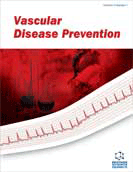Abstract
Cardiovascular diseases (CVD) are the major causes of morbidity and mortality in Western communities. Moreover, type 2 diabetes mellitus (DM) has become one of the most frequent diseases challenging physicians and its prevalence is rapidly increasing. The metabolic syndrome is associated with an increased risk of cardiovascular disease and type 2 DM. The most common manifestations of the metabolic syndrome are insulin resistance, central obesity, hypertension and dyslipidemia. Other components often associated with the metabolic syndrome are endothelial dysfunction, a proinflammatory and prothrombotic state, microalbuminuria, hyperuricemia, non-alcoholic fatty liver disease (NAFLD) and hyperhomocysteinemia. The underlying mechanism that can explain most -if not all- of the disturbances of the metabolic syndrome is insulin resistance. The primary goal of treating metabolic syndrome is the prevention of type 2 DM and cardiovascular events. Non-pharmacological means (life-style changes and weight reduction) should be the first line therapy in patients with the metabolic syndrome, accompanied by drugs when necessary. This review summarises the new insight aspects of metabolic syndrome and focuses on how to prevent and treat cardiovascular complications in patients with the metabolic syndrome.
Keywords: metabolic syndrome, insulin resistance, cardiovascular disease, type 2 diabetes, visceral obesity, hyperinsulinemia


